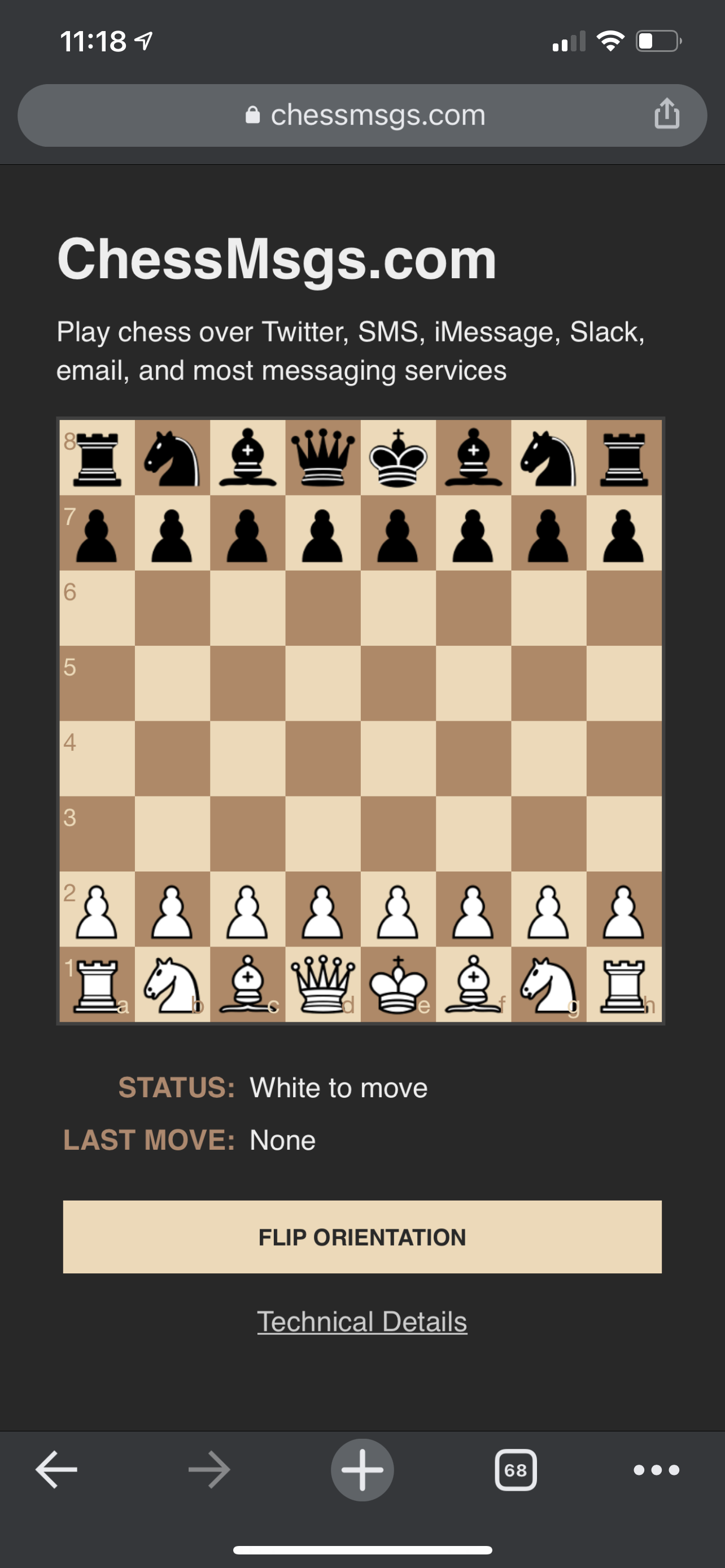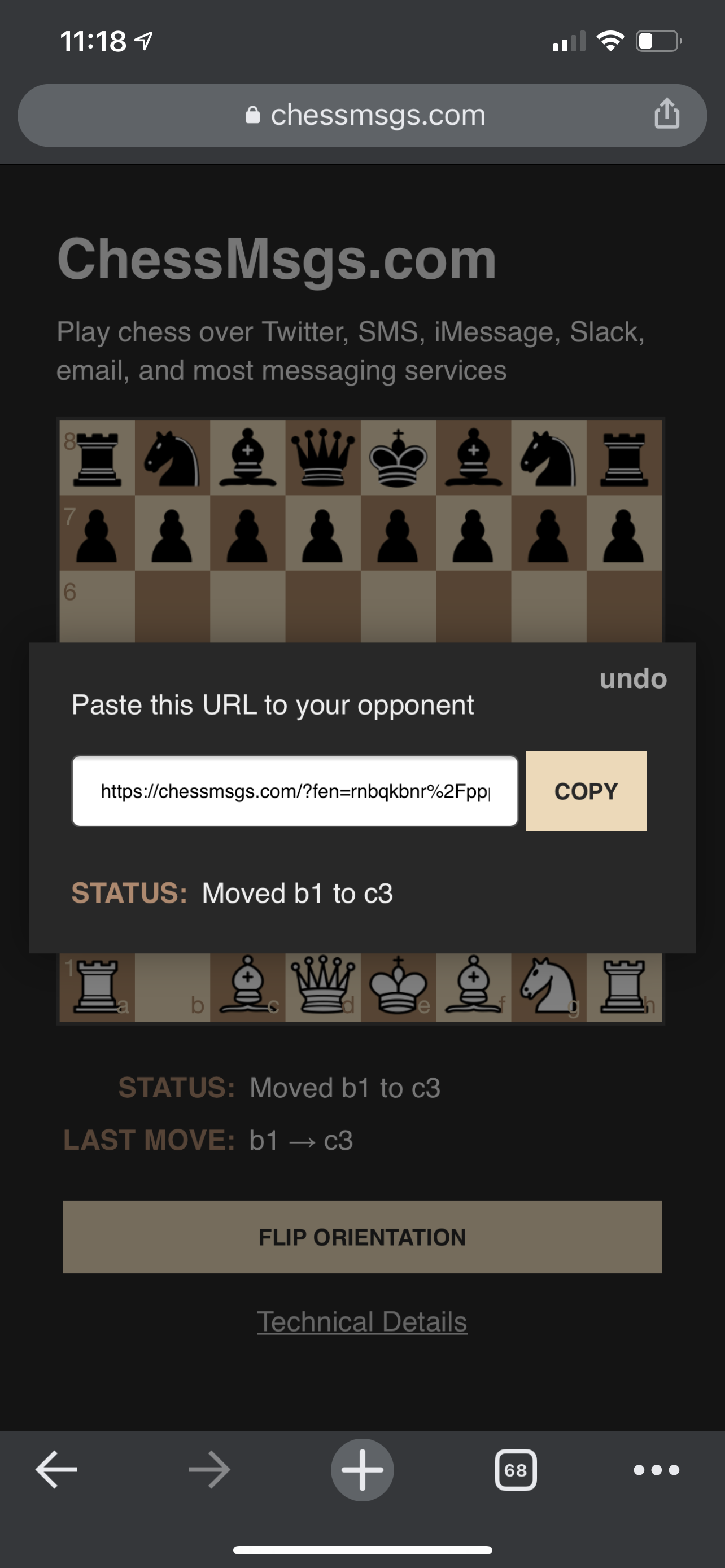Created because I wanted to play chess with others without having to install software, create accounts, etc.. Game play is simple -- make your move, copy and paste the URL to your opponent, etc.
Web browser-side - all chess logic is run in the browser
- chessboard.js - JavaScript chessboard component - by Chris Oakman
- chess.js - JavaScript chess library that is used for chess move generation/validation, piece placement/movement, and check/checkmate/stalemate detection - by Jeff Hlywa
- JQuery - the above two chess libraries required it, so I used it too.
Web Server - simple Node/Express server with some super simple templating to create the Open Graph and Twitter Card image URLs, links, etc. This could have easily been a static website other than this requirement.
- request-ip - Used for logging IP address of each move to use for future scaling (create additional copies in regions, etc.)
- nanoid - Used to generate unique Game IDs
- No database/data store -- all game state info is passed back and forth between players in URL
- Deployed on Google Cloud Run
Image Server - used to generate the image used for Open Graph and Twitter cards so that when a user posts a game link to most platforms, the platform will show the image with the current board position. I created an endpoint that looks like any other png file url (example).
- chess-image-generator - JavaScript library that creates a png from a FEN (standard chess board notation) - by Andrew Young
- I made a copy of generateBuffer() as generateCustomBuffer() and customized it to do padding to match Open Graph requirements
- Deployed as a route in the web server Node express app
- Main web server is in project root -- server.js
- Web content is in ./public
# Install all dependencies
npm install
# Run server
node server
Access http://localhost:8080 to test. If you are running this on your own server, you'll need to change the URL hard-coding in server.js (replace "chessmsgs.com")
Deploying to Google Cloud Run
npm run build
npm run deploy

